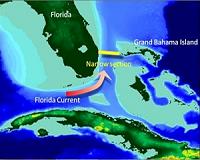 |
West Lafayette IN (SPX) Mar 07, 2011 A Purdue University researcher is leading an effort to create a new scientific field that will use sound as a way to understand the ecological characteristics of a landscape and to reconnect people with the importance of natural sounds. Soundscape ecology, as it's being called, will focus on what sounds can tell people about an area. Bryan Pijanowski, an associate professor of forestry and natural resources and lead author of a paper outlining the field in the journal BioScience, said natural sound could be used like a canary in a coal mine. Sound could be a critical first indicator of environmental changes. Pijanowski said sound could be used to detect early changes in climate, weather patterns, the presence of pollution or other alterations to a landscape. "The dawn and dusk choruses of birds are very characteristic of a location. If the intensity or patterns of these choruses change, there is likely something causing that change," Pijanowski said. "Ecologists have ignored how sound that emanates from an area can help determine what's happening to the ecosystem." Part of his research will be to capture sounds that are being lost and attempting to restore their value to people. Pijanowski said natural sounds such as birds chirping, wind rustling through leaves and even the absence of noise not only have aesthetic significance, but also can give people valuable information about what's happening around them. Pijanowski has already begun some of the soundscape ecology work in various natural and human-dominated landscapes around Tippecanoe County in Indiana. More than 35,000 recordings were used to characterize the rhythms of the natural sound and how varying degrees of human development affected those rhythms. One of the most significant findings was that as human impact in the landscape increases, the natural rhythms of sound created by the diverse wildlife population are replaced by low and constant human-produced noise. "As we continue to become more and more urban, we get used to the urban sounds which are mostly just noise. We're so used to blocking out noise that we block out the natural sounds as well," Pijanowski said. "Animals create sounds for a reason: to convey information. Noise carries no information with it generally. The sound of a car passing by is important, but it is simply making noise as a result of friction. The noise it makes has no information. It's not an intentional signal being produced by a sentient being." Pijanowski said society has become more visual and he wants to restore the importance of sound to our experiences. He said psychologists call the broader disconnect Nature Deficient Disorder, and Pijanowski believes that reconnecting with sounds will open doors to reconnecting with nature - something he views as important to being environmentally conscious. "If we disconnect with the sounds of nature, will we continue to respect and sustain nature?" Pijanowski said. While Pijanowski is eager to develop research projects in soundscape ecology, he acknowledged a few challenges associated with starting a new scientific field. There is no established vocabulary for the field, and Pijanowski anticipates creating new terminology and has already borrowed from related fields. For example, he uses the terms "biophony" (the sounds created by organisms) and "geophony" (the sounds of non-biological entities such as wind and thunder) from the field of acoustic ecology, which focuses on using natural sounds to create musical compositions. This new field is able to move forward because computerized sensor technologies are becoming reliable and cost-effective. Soundscape ecology is dependent on sensor technology and custom software. To bolster interest, Pijanowski is making software tools and sound file examples available to help researchers interested in becoming involved in the research. "It is really difficult to find people who think the same way since it's such a new field," Pijanowski said. "There are really only a handful of us so far. But we believe in the science and hope to attract others who will make significant contributions." Those others will come from a wide array of fields. Pijanowski said he'll work with researchers in spatial ecology, land-use planning, conversation biology, bioacoustics, cognitive psychology, informatics and acoustic engineering, to name a few.
Share This Article With Planet Earth
Related Links Purdue University Darwin Today At TerraDaily.com
 UF Pine Island Pollen Study Leads To Revision Of State's Ancient Geography
UF Pine Island Pollen Study Leads To Revision Of State's Ancient GeographyGainesville FL (SPX) Mar 04, 2011 A new University of Florida study of 45-million-year-old pollen from Pine Island west of Fort Myers has led to a new understanding of the state's geologic history, showing Florida could be 10 million to 15 million years older than previously believed. The discovery of land in Florida during the early Eocene opens the possibility for researchers to explore the existence of land animals at t ... read more |
|
| The content herein, unless otherwise known to be public domain, are Copyright 1995-2010 - SpaceDaily. AFP and UPI Wire Stories are copyright Agence France-Presse and United Press International. ESA Portal Reports are copyright European Space Agency. All NASA sourced material is public domain. Additional copyrights may apply in whole or part to other bona fide parties. Advertising does not imply endorsement,agreement or approval of any opinions, statements or information provided by SpaceDaily on any Web page published or hosted by SpaceDaily. Privacy Statement |